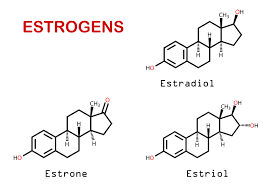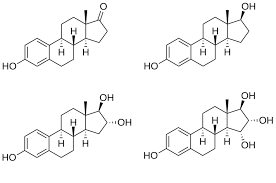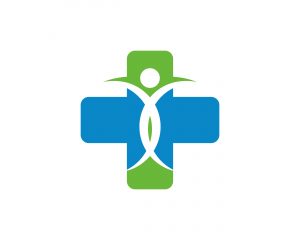Symptoms Of Hormonal Imbalance In Women: What To Look For
Video Link: https://vimeo.com/556467198
Video Download: Symptoms Of Hormonal Imbalance In Women What To Look For
Video Stream: Symptoms Of Hormonal Imbalance In Women What To Look For
Hormone balance can be a fickle thing to maintain, especially as you age, or as a woman, during and/or after menopause. Women are susceptible to hormonal changes, mainly because so many hormones are involved in reproduction and the menstrual cycle.
Menopause, aging, and lifestyle tend to wreak havoc on the delicate balance of hormones in a woman’s body. Here are the signs and symptoms to look out for if you suspect hormone imbalance.
What are Hormones Again?
Hormones are chemicals produced by several different glands and tissues throughout the body, part of the endocrine system. Hence why  the study of hormones is called endocrinology. Hormones are chemical messengers that travel through the body to organs and cells to tell them what to do and when. Aren’t our bodies amazing?
the study of hormones is called endocrinology. Hormones are chemical messengers that travel through the body to organs and cells to tell them what to do and when. Aren’t our bodies amazing?
Hormones regulate sexual function, appetite, body temperature, metabolism, sleep, mood and stress levels, heart rate, and more.
They are essential, and problems will most likely arise if just one hormone becomes significantly lowered or raised out of its normal range.
Signs of Hormone Imbalance in Women
Excess Weight Gain: Excessive weight gain is often triggered by hormone imbalance. It seems like the weight came on quickly and is incredibly difficult to lose. As said before, hormones play a significant role in metabolism and the nervous and reproductive systems.
All three of these are involved in maintaining a healthy weight.
The hormones mainly to blame are increased oestrogen, cortisol, insulin, and low levels of thyroxin. Throughout a woman’s menstrual cycle, oestrogen levels naturally increase, and this can cause women to crave and eat more fatty or sugary junk food.
Increased levels of the stress hormone cortisol slow down metabolism. Consider incorporating meditation or a calming exercise daily to reduce cortisol levels. Lowering sugar intake also helps with this as well as regular exercise.
Hormonal acne: Many women experience skin breakouts right before and/or during their menstrual period. About 50% of women in their twenties experience hormonal acne, and 25% of women in their forties are about to experience menopause.
It’s normal for these breakouts to go away once menstruation is over and hormone levels fluctuate back down, but women with excess androgens may experience chronic hormonal acne. This includes whiteheads, cysts, blackheads, or general redness and inflammation.
Androgens are male hormones such as testosterone, and these can make the skin produce extra oil, which clogs pores, causing acne. In addition, high androgens may be caused by excess insulin (another hormone).
To combat this, you may need hormonal contraceptive pills or anti-androgen pills. To soothe inflammation, corticosteroids can help temporarily. Weight loss can prevent insulin resistance.
Mood Swings: One of PMS's most common (and made fun of) symptoms is moodiness. Menopausal and pregnant women are also known to experience moodiness. Mood changes include anger, sadness, depression, irritability, and anxiety and are caused mainly by fluctuations in oestrogen levels.
Oestrogen affects neurotransmitters such as dopamine, norepinephrine, and serotonin. Some doctors prescribe hormonal birth control pills to control moodiness in extreme cases. Relieve mood swings naturally by exercising regularly, avoiding stimulants (caffeine, sugar), taking calcium supplements, getting enough sleep, and eating smart.
Digestive Issues: Oestrogen imbalances commonly lead to frequent stomach upsets. The gastrointestinal tract has receptors for both oestrogen and progesterone. If either of these is out of balance, symptoms such as abdominal pain, constipation, bloating, nausea and diarrhea may result.
This could be why women experience IBS more than men, as they are twice as likely to have it. Interestingly, male hormones such as testosterone have been seen to have protective effects against IBS.
Hormonal birth control pills do not seem to relieve digestive issues resulting from hormone imbalance. Try taking magnesium supplements or eating magnesium-rich foods to relieve constipation and get your digestive tract running smoothly.
The foods to eat are whole grains, sweet potatoes, leafy greens, bananas, and fish. Try incorporating fermented foods in your diet as well as ingesting enough fiber.
Low Sex Drive: Low testosterone levels are to blame here. Testosterone plays a significant role in the sex drives of women, not just men. One study  showed that postmenopausal women who reported low libido had increased sexual desire after being given testosterone.
showed that postmenopausal women who reported low libido had increased sexual desire after being given testosterone.
They also reported more satisfying sexual experiences. Testosterone must be taken under the supervision of a doctor or endocrinologist because women do not need high hormone doses – unwanted side effects such as hair growth and other masculine traits may result.
Besides testosterone replacement therapy, other ways to increase your libido include maintaining a healthy diet and engaging in regular exercise.
Reference
- 0001 Research Hgh For Patients Over 60 [Last Updated On: June 8th, 2025] [Originally Added On: September 30th, 2020]
- 0002 Natural Hormone Replacement Abc News 13 [Last Updated On: October 25th, 2025] [Originally Added On: October 2nd, 2020]
- 0003 My Own Experience With Human Growth Hormone Case Study [Last Updated On: February 10th, 2025] [Originally Added On: October 3rd, 2020]
- 0004 Ipamorelin Alternative To Hgh Injection Therapy [Last Updated On: February 10th, 2025] [Originally Added On: October 4th, 2020]
- 0005 Human Growth Hormone Therapy For Adult Hgh Deficiency Do The Benefits Stack Up [Last Updated On: February 2nd, 2025] [Originally Added On: October 5th, 2020]
- 0006 Human Growth Hormone Rehabilitation Benefits [Last Updated On: June 1st, 2025] [Originally Added On: October 6th, 2020]
- 0007 HRT [Last Updated On: May 5th, 2025] [Originally Added On: October 7th, 2020]
- 0008 Hormone Replacement Therapy With Pellet Implants [Last Updated On: May 4th, 2025] [Originally Added On: October 8th, 2020]
- 0009 Omnitrope Bio-identical HGH Injections [Last Updated On: February 2nd, 2025] [Originally Added On: October 9th, 2020]
- 0010 Imported Human Growth Hormone Is Illegal In The United States [Last Updated On: February 1st, 2025] [Originally Added On: October 10th, 2020]
- 0011 Igf-1 Stimulates The Growth Of Motor Neurons In The Brain [Last Updated On: June 2nd, 2025] [Originally Added On: October 11th, 2020]
- 0012 Estrogen Hormone Replacement Therapy May Diminish Alzheimers Disease Risk [Last Updated On: February 1st, 2025] [Originally Added On: October 12th, 2020]
- 0013 The Potential Benefits Of Estrogen On Alzheimer's Risk [Last Updated On: January 31st, 2025] [Originally Added On: October 13th, 2020]
- 0014 Dr. Hotze Talks About A Natural Solution For Depression. [Last Updated On: October 27th, 2025] [Originally Added On: October 14th, 2020]
- 0015 Anastrozole Research Study [Last Updated On: January 30th, 2025] [Originally Added On: October 15th, 2020]
- 0016 Beware of Fake Hormone Booster Pills – Sign Up for the Real Deal [Last Updated On: February 27th, 2025] [Originally Added On: December 21st, 2022]
- 0017 Chronic Fatigue versus Hormone Deficiency: How Can Patients and Doctors Tell the Difference? [Last Updated On: April 9th, 2025] [Originally Added On: January 18th, 2023]
- 0018 Ipamorelin: A Safer, Cost-Effective Alternative to HGH Therapy [Last Updated On: February 13th, 2025] [Originally Added On: February 13th, 2025]
- 0019 Treatment of Hormone Deficiencies [Last Updated On: February 15th, 2025] [Originally Added On: February 15th, 2025]
Word Count: 779






